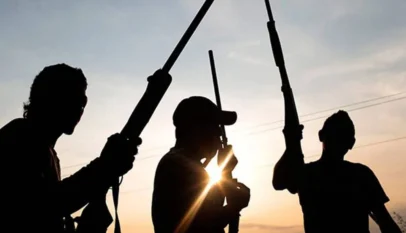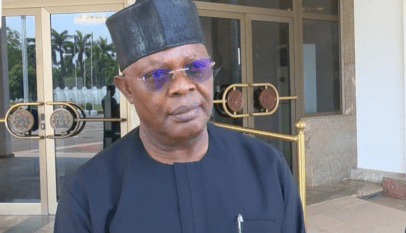
Photo: Olu of Warri, Ogiame Atuwatse III
By G.T. Addey (Agolokorobosin)
The erosion of the Itsekiri nation’s territorial and political integrity is no longer a silent threat but a clear and present danger. This issue did not begin with the reign of Ogiame Atuwatse III CFR; the struggle to retain control over Warri, our ancestral homeland, has been decades in the making. The only difference now is how close we are to the precipice.
Encroachments, name changes, and strategic dilution of indigenous Itsekiri presence have long marked the political chessboard of the Niger Delta. While the Ijaws and Urhobos meticulously redrew the map—seizing territories and renaming communities—many of our leaders remained distracted by short-term political alliances and personal gains. Today, the results are undeniable: our grip on Warri is weakening, and unless something drastic changes, we may soon lose it altogether.
This is not merely about inter-ethnic conflict or political rivalry. It is about a disturbing lack of vigilance, a complacency that has festered within the Itsekiri political class and populace alike. Attempts to raise the alarm are met with denial or apathy. Dangers are dismissed. Realities are downplayed.
Let us be clear: if Warri Kingdom falls, the political class that failed to defend it will fall with it. The collapse of the kingdom would mark not only the end of a proud history but the total dismantling of Itsekiri hegemony in Delta State—a hegemony that once symbolized order, culture, and resilience.
Some argue that the issue is a lack of unity. But history shows us otherwise. No tribe has ever achieved perfect unity. Yet, that has never stopped others from advancing their political interests. So we ask: Were we disunited when Warri South Constituency II was handed to the Urhobos?
Was it division that allowed the chairmanship and House of Assembly seats of Warri South-West to rotate beyond Itsekiri reach?
Was internal conflict responsible for the loss of leadership in Warri North—our traditional stronghold—even with a favorable 6/4 ward structure?
Were we fractured when our communities were renamed in contradiction of Supreme Court rulings?
Did a lack of unity sabotage the Escravos Gas-To-Liquids (EGTL) project, a potential catalyst for our development?
What excuse can we offer for failing to convert eight years of governorship and over two decades of House of Representatives control into meaningful, measurable progress?
The answers are sobering.
It is not disunity that has brought us here. It is docility. It is our failure to act when it mattered most. It is the absence of bold, visionary leadership and a people who have grown too accustomed to being sidelined.
The battle for Warri has been waged for years. In 2003, Professor Itse Sagay issued a prophetic warning: “Warri is Itsekiri territory; Itsekiri must maintain control of it.” He cautioned against political complacency, likening the consequences to what has happened to other indigenous groups across the world who lost control of their homelands to migrant majorities. His message was clear—if we lose Warri, we lose ourselves.
Why is Warri so contested? Because it is strategic. Warri is not just a name—it is a brand. It is known globally. It boasts fresh and saltwater, sits near the Barmouth that links directly to the Atlantic, and is rich in history and economic promise. This is what makes our neighbors so relentless in their quest to claim it, not through outright conflict, but through calculated political and demographic shifts.
This piece is not a call to arms—it is a call to awareness. To awakening. To strategy. To action.
It is a plea for the Itsekiri people to reclaim their voice and their vision. To educate the next generation. To resist complacency. To organize politically and culturally. To speak boldly, act smartly, and remain unflinchingly committed to preserving their heritage.
Warri must not fall. Not on our watch. Not to history. Not to politics. Not to indifference.
Let this be the turning point.
G.T. Addey sent this piece from Ogbe Quarters, Ode-Itsekiri (Big Warri)

































